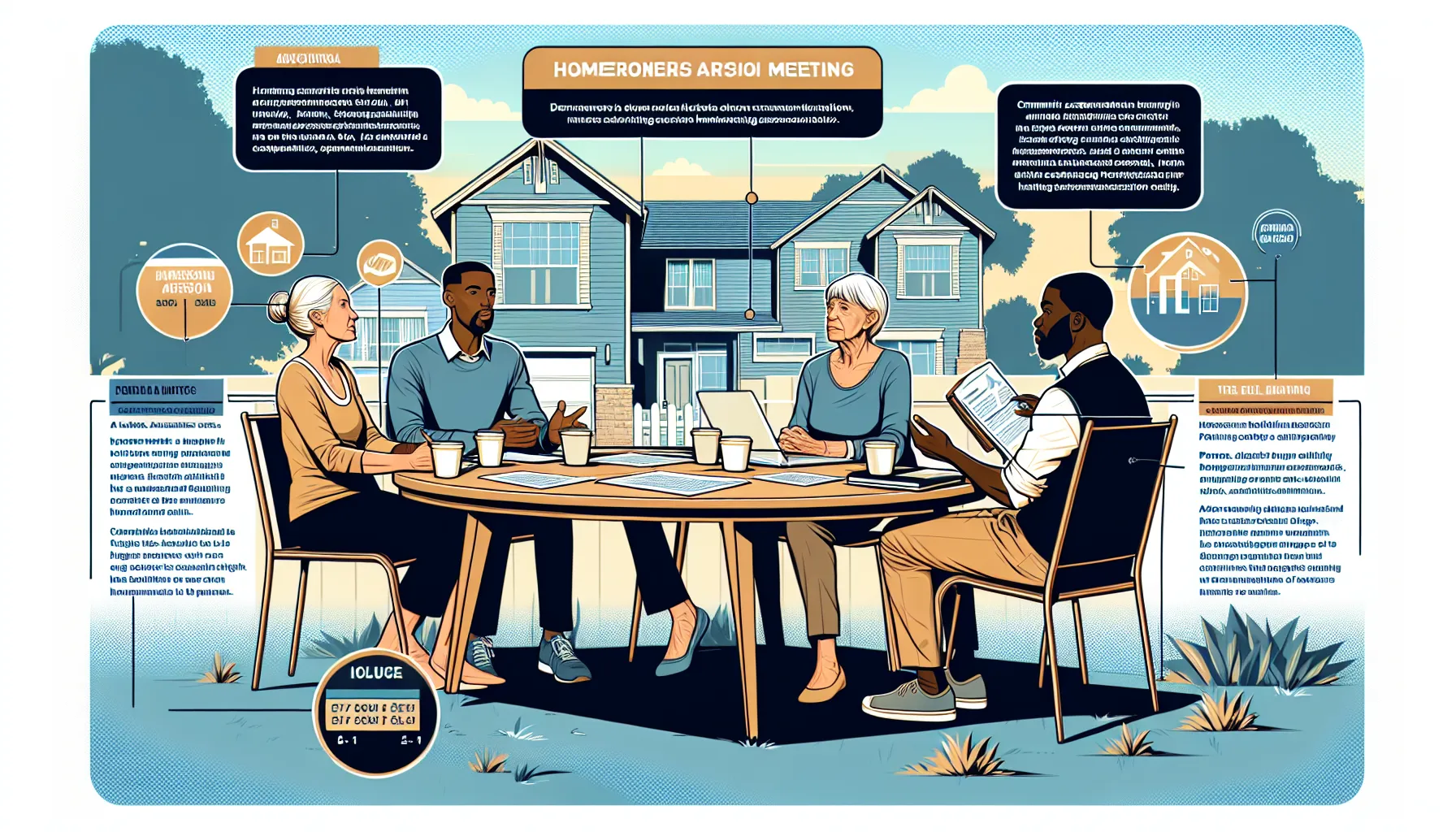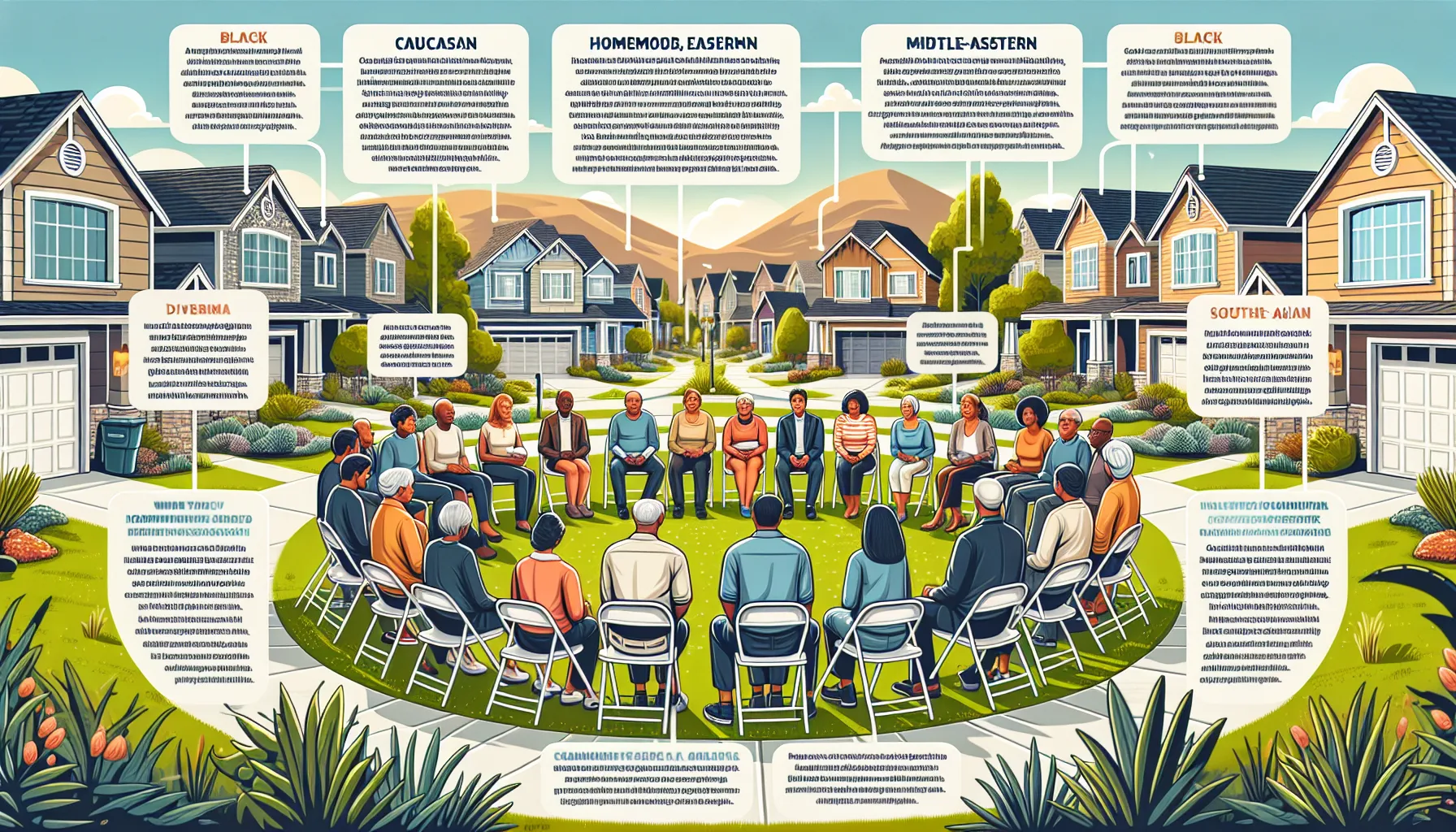Key Takeaways
- HOA rule enforcement ensures harmony and property value preservation by maintaining community standards through clear guidelines and consistent application.
- Common HOA rules in Fremont include landscaping maintenance, parking restrictions, and noise control policies designed to promote a cohesive and peaceful neighborhood.
- Fairness and transparency are critical in addressing violations, providing warnings, tiered penalties, and opportunities for dispute resolution to build trust among residents.
- Proactive communication fosters compliance, utilizing tools such as newsletters, community meetings, and clear documentation to keep residents informed and engaged.
- Consistency and legal alignment in enforcement prevent misunderstandings, with Fremont HOAs emphasizing uniform rule application and leveraging mediation or legal resources when necessary.
- Fremont HOAs prioritize education and community involvement, encouraging collaboration through open forums and guidance to reduce conflicts and support compliance.
Homeowners associations (HOAs) play a significant role in maintaining harmony and property values within communities. But let’s face it, understanding and adhering to HOA rules can sometimes feel overwhelming. Whether it’s about landscaping guidelines, parking restrictions, or noise policies, these regulations are meant to create a cohesive neighborhood—but they can also spark questions and concerns.
Have you ever wondered how HOA rules are enforced or what steps are taken to address violations? Clear communication and consistent enforcement are key to fostering trust and fairness in any HOA-governed community. By exploring how these processes work, you’ll gain a better understanding of what to expect and how to navigate potential challenges.
Overview Of HOA Rule Enforcement
HOA rule enforcement plays a critical role in fostering well-managed communities. These associations rely on established guidelines to maintain the appearance and safety of neighborhoods. By enforcing rules, they help preserve property values and create a cohesive living environment.
Clear procedures for addressing violations are key to effective rule enforcement. Does your HOA provide transparent steps for handling issues? Policies often include warning notices, hearings, and potential fines for non-compliance. Clear communication ensures homeowners understand their responsibilities.
Proactive monitoring minimizes disputes within communities. Regular property inspections and community involvement often keep rule violations in check. How often does your neighborhood engage in these practices? Consistent enforcement builds trust and helps homeowners feel treated fairly.
Addressing challenges is an integral part of any HOA’s duties. From balancing individual preferences to applying rules equally, managing associations requires a fair and thoughtful approach. Are there specific rules in your community that seem unclear or difficult to follow? Understanding enforcement practices can help homeowners avoid unnecessary conflicts.
Common HOA Rules In Fremont

Homeowners associations in Fremont help preserve community standards and property values. Though these rules may seem overwhelming at first, they’re aimed at creating a harmonious living environment. Have you wondered how specific regulations apply to your neighborhood?
Landscaping Regulations
Many HOAs prioritize neat and well-maintained landscapes. Regulations often require homeowners to keep lawns trimmed, remove weeds, and maintain healthy plants. For example, flower beds and shrubs must typically reflect a clean and cared-for appearance. Some associations have restrictions on specific types of plants, such as those considered invasive or water-intensive, to align with local sustainability efforts. Do you find landscape maintenance rules challenging to follow or unclear? Reviewing the HOA’s guidelines and inspection schedules can clarify expectations.
Parking Restrictions
Parking policies help ensure neighborhoods stay organized and safe. Common rules include prohibiting street parking in certain areas or limiting the number of vehicles that can be parked on a property. For instance, oversized vehicles like RVs or boats might only be allowed in designated spaces or not at all. Guest parking restrictions are also common and can require homeowners to register visitor vehicles in advance. Have you checked if your HOA has specific rules about driveway or overnight parking?
Noise Control Guidelines
Noise guidelines aim to reduce disturbances, fostering peaceful environments. Fremont HOAs typically enforce quiet hours, often during late evening and early morning. These rules might address loud music, barking dogs, or construction noise outside approved hours. If compliance seems unclear, reaching out to the HOA or reviewing community policies might help address concerns. Are there specific noise-related situations you’d like better guidance on?
Challenges In HOA Rule Enforcement

HOA rule enforcement often involves addressing issues that balance individual homeowner interests with collective community standards. These processes can sometimes feel overwhelming for both the enforcers and the homeowners. How can communities maintain harmony while holding everyone accountable to the same rules?
Balancing Fairness And Compliance
Maintaining fairness in rule enforcement is essential for preserving trust within the community. Consistent enforcement of regulations builds confidence that all residents are held to the same expectations. For instance, addressing parking violations uniformly—whether it’s a resident’s vehicle or a visitor’s—prevents perceptions of favoritism. Transparent communication, like regular updates about rules and their significance, fosters a sense of collective ownership in the community. Could setting clear boundaries with approachable methods ease misunderstandings?
Striking the right balance often means considering diverse perspectives. While one homeowner might view a gardening rule as overly strict, others may see it as preserving neighborhood aesthetics. Engagement through tools like community forums allows voices to be heard and supports alignment on shared goals.
Handling Disputes And Penalties
Disputes arise when homeowners feel penalties are unfair or excessive. Addressing these concerns requires clear guidelines that specify actions and associated consequences. For example, sending a first-time warning for a noise violation creates an opportunity for resolution without escalating the issue. Would a tiered penalty structure help to minimize repeated offenses?
Tactful communication mitigates tensions. Suppose a homeowner disputes a fine for improper landscaping. Explaining the violation alongside possible solutions reflects an HOA’s commitment to collaboration rather than unilateral decisions. Offering mediation or a hearing process gives residents a platform to clarify their perspective and reach a mutually agreeable solution.
Best Practices For Effective Rule Enforcement

Effective HOA rule enforcement fosters a cooperative and harmonious community. By engaging homeowners and prioritizing fairness, HOAs can maintain order while minimizing conflict.
Clear Communication With Residents
Clear communication builds trust between the HOA and residents. For example, rules explained in understandable terms reduce confusion. How does your HOA share updates or changes? Methods like newsletters, email lists, and community meetings create stronger connections. Transparency in outlining why specific rules exist can also lessen resistance. Providing answers to questions proactively helps establish a sense of inclusion for all members.
Consistent Application Of Rules
Consistency in enforcement helps avoid perceptions of favoritism. Enforcing parking guidelines or landscaping standards equally builds credibility. Do members feel they’re treated fairly? Regular training for HOA board members and property managers strengthens rule compliance without bias. Publicly reinforcing the process for violations ensures homeowners understand next steps, whether they face a warning or fine. Predictable standards encourage adherence from all residents.
Leveraging Legal Resources
Legal advice prevents missteps in enforcing HOA regulations. Consulting an experienced attorney ensures policies align with local and state laws. Are community standards legally enforceable? Using clear legal documentation protects both homeowners and the HOA in case of disputes. For escalated issues, mediation can enable open dialogue, reducing the need for legal proceedings.
How Fremont Stands Out In HOA Rule Enforcement

Fremont has developed a reputation for effective and balanced HOA rule enforcement. Communities here emphasize fairness, collaboration, and clarity in maintaining property standards and fostering peaceful co-living. The focus remains on creating neighborhoods that respect diverse needs while promoting shared values.
One key element is transparency. HOAs in Fremont follow well-documented procedures to address violations, including clear timelines and guidelines for resolving issues. For example, when driveway or street parking restrictions are enforced, homeowners receive detailed notices explaining the rule and any actions required from them. This approach minimizes confusion and builds understanding.
Community involvement strengthens enforcement efforts. Fremont HOAs often engage residents through regular meetings and open forums to discuss rules and gather feedback. These sessions provide a platform for homeowners to voice concerns and suggest adjustments that better suit their neighborhood while staying aligned with broader standards.
Consistency in enforcement also stands out. Fremont HOAs apply rules uniformly to avoid perceptions of bias. Whether addressing landscaping upkeep or noise complaints, enforcement actions follow established protocols. This consistency fosters trust and ensures homeowners feel treated fairly, encouraging adherence to regulations.
Additionally, Fremont HOAs prioritize education. Homeowners often receive guidance on compliance, such as tips for maintaining yards or clarifying quiet hour policies. Regular newsletters and digital updates help residents stay informed, reducing misunderstandings and potential violations.
How do these approaches compare to your HOA’s methods? By fostering clear communication, uniform practices, and active resident involvement, Fremont communities create a model for effective HOA rule enforcement.
Conclusion
HOA rule enforcement plays a vital role in fostering well-maintained and harmonious communities. Fremont’s approach highlights the value of fairness, transparency, and consistent communication in addressing violations while prioritizing collaboration with homeowners. By understanding and engaging with these practices, residents can contribute to a thriving neighborhood that balances individual needs with collective standards.
Frequently Asked Questions
What is the primary role of a homeowners association (HOA)?
An HOA is responsible for maintaining community harmony, preserving property values, and enforcing specific rules and regulations to ensure a well-organized and pleasant neighborhood environment.
Why are HOA rules important?
HOA rules provide guidelines for homeowners to maintain property standards, ensure safety, and promote a cohesive living environment. They help communities avoid disputes and maintain aesthetic appeals.
How does an HOA address rule violations?
HOAs typically follow transparent procedures like issuing warnings, conducting hearings, and imposing fines. These steps ensure homeowners understand their responsibilities and maintain compliance.
What common rules are enforced by HOAs?
Common HOA rules include landscaping maintenance, parking restrictions, noise control, and guidelines for property modifications to ensure community harmony and safety.
How do HOAs enforce parking regulations?
HOAs often limit street parking, manage oversized vehicles, and enforce parking assignments to maintain safety and organization within the neighborhood.
What should I do if I disagree with an HOA rule or penalty?
You can appeal or request a hearing, as many HOAs offer channels for homeowners to voice concerns, clarify rules, and resolve disputes fairly.
What makes Fremont’s HOA practices unique?
Fremont’s HOAs stand out for their fairness, transparency, community involvement, and consistent enforcement of rules, which foster trust and collaboration among homeowners.
How do HOAs communicate rules and updates?
HOAs use methods like newsletters, emails, and community meetings to educate and update homeowners on rules, ensuring clarity and reducing misunderstandings.
What happens if an HOA rule feels unfair or unclear?
Homeowners are encouraged to review governing documents or contact the HOA for clarification. Many HOAs offer mediation or open forums for resolving concerns amicably.
Why is consistent rule enforcement essential for HOAs?
Consistent enforcement prevents perceptions of favoritism, builds trust among homeowners, and ensures all community members adhere to the same standards.
How can homeowners engage with their HOA?
Homeowners can participate in meetings, join committees, and provide feedback to stay informed and contribute to the community’s decisions and rule-making processes.
Can HOA rules differ by location, such as in Fremont?
Yes, rules often vary by location to address specific needs and values of the community. Fremont HOAs prioritize fairness, collaboration, and sustainability, making their practices exemplary.
How can HOAs minimize disputes with homeowners?
Clear communication, consistent rule enforcement, offering mediation options, and involving homeowners in decision-making are key strategies to reduce disputes.
Are HOA rules legally enforceable?
Yes, provided they align with local and state laws. Regularly consulting legal resources helps HOAs ensure their policies are lawful and enforceable.
What is the benefit of proactive HOA monitoring?
Regular inspections and community involvement help HOAs address potential violations early, reduce disputes, and maintain the neighborhood’s appearance and safety effectively.
